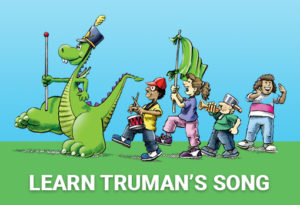Tips for a smooth transition back to school
Often, it’s this first day (or days) that set the tone for the school year to come. Help your child feel prepared and confident to tackle whatever the school year brings with these tips for a successful start. • Plan well-balanced meals: Summer break brings a lax approach to many aspects of life, and healthy eating is often one of them. However, nutrition plays an important role in overall development and countless studies show correlation between academic performance and good nutrition. As the school year approaches, work at creating healthy menus. If hectic scheduling makes it difficult to get well-balanced meals in lunchboxes and on the dinner table through the week, allocate a portion of the weekend for a family prep session. • Reinstate bedtimes: Easing back into earlier bedtimes will make things smoother for everyone when the alarms start ringing on early school day mornings. Well before the start of school, gradually back off more time each night — in 15-minute increments, for example — to get kids back in bed early enough to capture at least 10 hours of sleep, the amount recommended for school-aged children and adolescents by the National Institutes of Health. • Explore outside of academics: Developing interests outside the classroom builds confidence and character, teaches discipline and may help reveal hidden passions or talents that translate into future scholarships or career choices. Now is an ideal time to explore the options available in your community and complete necessary registrations as many extra-curricular activities are closely linked to the traditional school calendar. • Follow the paper trail: The volume of paperwork associated with sending a child to school can be overwhelming. From registration forms and emergency contact sheets to physicals and immunization records, the list goes on and on. Keep on track with a list of all the materials you’re responsible for completing, along with special notes for those that require visits to the doctor’s office or other appointments. • Take a tour: Especially for new students, but even for experienced kids, spend some time getting familiar with the school before the big day. Seeing the bus drop-off location, classroom, bathrooms, cafeteria and any other major features ahead of time can help soothe jitters and lets you proactively answer worries or questions about how those first days may unfold. • Establish a transition tradition: Celebrate the end of summer and the fresh start ahead by creating a special family tradition. It may be a final backyard campout for the season or a scrapbooking project that captures memories from the summer and describes goals for the school year. The time together to talk about what lies ahead can help get the family geared up for a successful school year.





